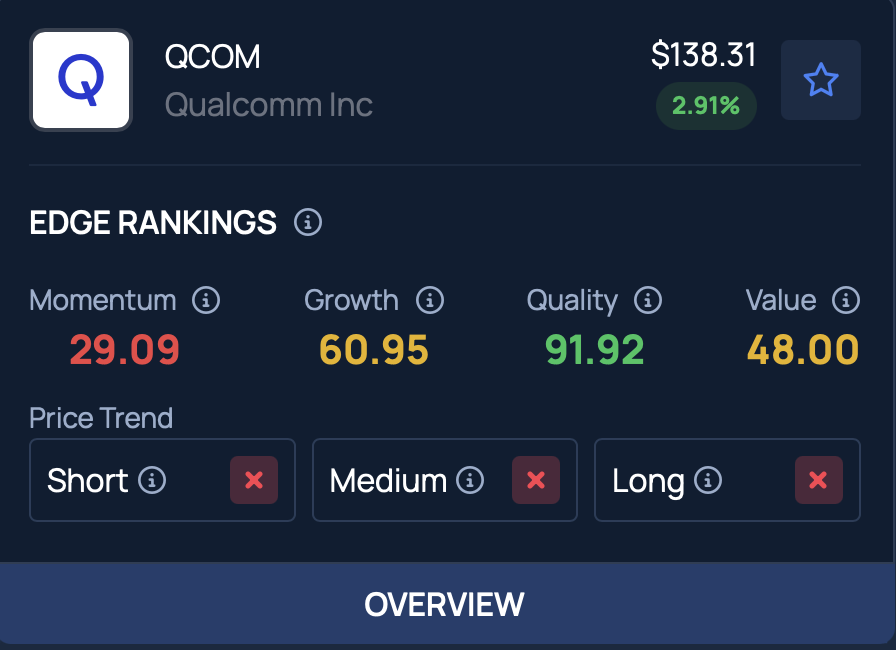On Friday, China’s General Administration of Customs implemented a new rule that determines the country of origin for semiconductor products based on the location of wafer fabrication — not where the chips are designed, developed, or packaged.
What Happened: As a result of this development, chips designed by U.S.-based companies like Nvidia Corporation NVDA, Advanced Micro Devices AMD, and Qualcomm Inc. QCOM but manufactured by foundries in Taiwan, such as Taiwan Semiconductor Manufactoring Co. Ltd TSM and United Microelectronics Corporation UMC, will be exempt from China’s 125% retaliatory tariffs on U.S. imports, reported Tom’s Hardware.
However, this rule delivers a blow to U.S. chipmakers like Intel Corporation INTC, GlobalFoundries GFS, and Texas Instruments TXN, which fabricate their chips domestically.
Products from these companies will now face the full brunt of China’s import tariffs, dramatically impacting their competitiveness in the Chinese market.
See Also: Qualcomm Expands AI Ambitions With Acquisition of VinAI’s Generative AI Division
The China Semiconductor Industry Association (CSIA) issued a notice clarifying that the “country of origin” for all chips — packaged or unpackaged — will be based solely on where the wafers were processed.
Because China considers Taiwan part of its own territory, chips produced in Taiwanese fabs are not subject to the punitive tariffs, even if designed and sold by American firms.
Why It Matters: This change effectively divides U.S. semiconductor firms into winners and losers. Designers like Nvidia, AMD, Broadcom Inc. AVGO, and Qualcomm benefit from outsourcing production to Taiwan, which keeps their products tariff-free and their access to China intact.
Meanwhile, chipmakers with U.S.-based fabrication operations—such as Intel’s fabs in Arizona and Oregon and GlobalFoundries’ Fab 8 in New York—are now disadvantaged.
The rule bolsters China’s geopolitical stance by treating Taiwan as a domestic supplier and incentivizes more outsourcing to Taiwanese and Chinese foundries, the report noted.
It may also redirect chip business away from U.S. fabs, pushing global firms to avoid sourcing from the U.S. to sidestep tariffs.
In a note released Thursday, Goldman Sachs economists, led by Andrew Tilton, warned that the abrupt hike in U.S. tariffs on Chinese imports — raised to 125% as of April 9 — could significantly impact China’s economy and put as many as 20 million export-related jobs at risk.
Qualcomm has a growth score of 60.95, according to Benzinga Edge Stock Rankings. Click here to see how it stacks up against companies like Nvidia, AMD, TSMC, Intel, and others.

Read Next:
Disclaimer: This content was partially produced with the help of AI tools and was reviewed and published by Benzinga editors.
Photo courtesy: Shutterstock
Market News and Data brought to you by Benzinga APIs